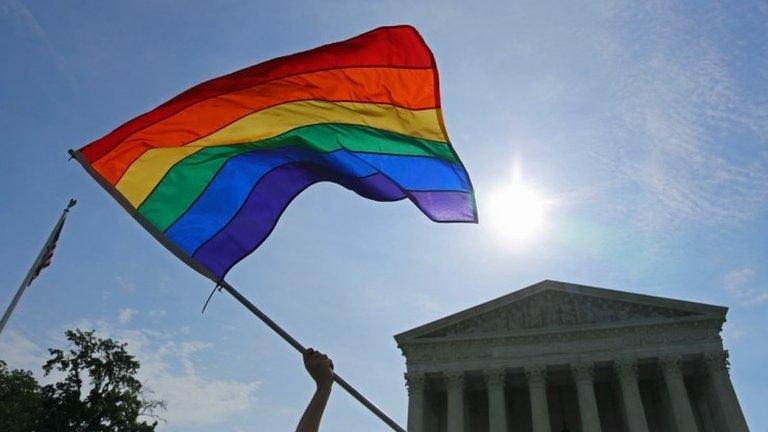Jim Obergefell: The man who helped legalise same-sex marriage
- Published
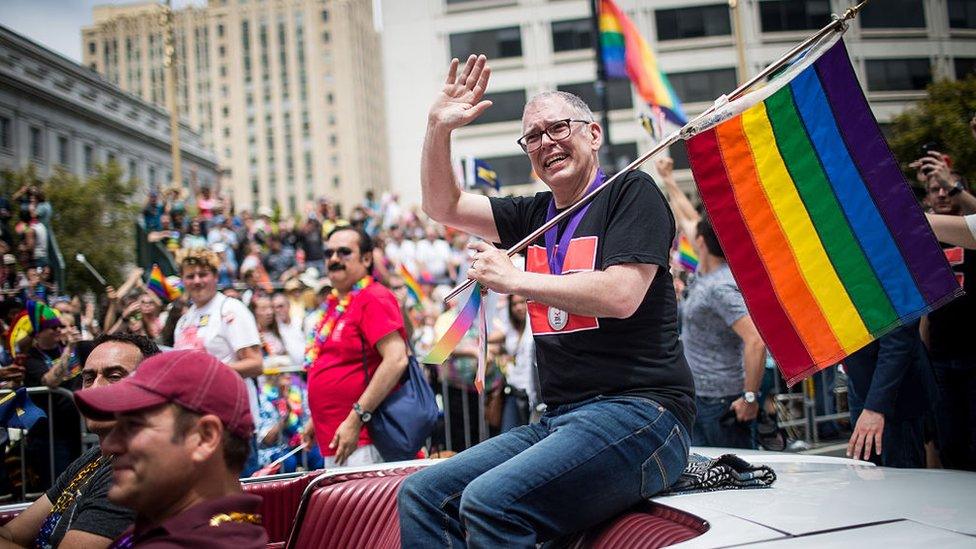
Jim Obergefell at San Francisco Pride in 2015
He wanted his husband to "die with dignity" and their marriage to "exist" in the eyes of the state they called home.
Nearly a decade ago, Jim Obergefell filed a lawsuit in his native Ohio to ensure his lawful marriage in Maryland to long-time partner John Arthur could "never be erased".
Arthur succumbed to illness before the case was decided, but in 2015, the US Supreme Court ruled in their favour - recognising their union and establishing national protections for same-sex marriage.
On Tuesday, the US Senate took a further step and voted to shore-up same-sex, as well as interracial, marital rights in federal law. The bill, named the Respect for Marriage Act, now goes to the US House of Representatives and, with Democrats in full control of Washington until January, is virtually assured of passage into law.
But Mr Obergefell, 56, is not celebrating. He worries the bill includes far too many concessions to those who use their religious beliefs as "a weapon" to persecute others, and that LGBT rights remain vulnerable before a Supreme Court that has veered conservative.
He is hardly alone. Support for marriage equality in the US has never been higher than it is today, but LGBT advocates have expressed alarm over a wave of recent anti-LGBT legislation and incidents around the country.
For the man who calls himself "an accidental activist", that means one thing - staying in the fight for LGBT rights.
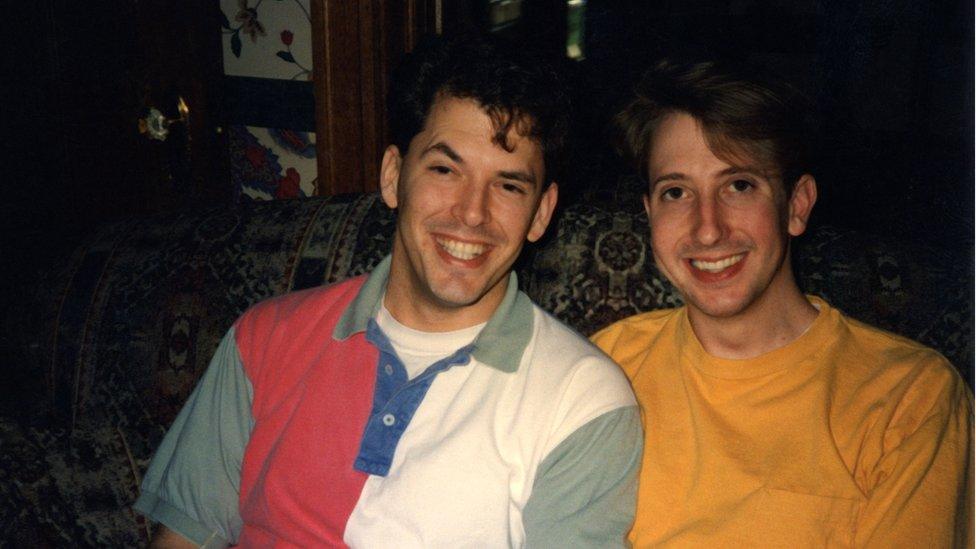
Jim and John in 1993
Born into a family of six in the city of Sandusky in 1966, Mr Obergefell grew up "either completely closeted or not knowing who [he] was as a person".
"In college, the closet door cracked open, but I slammed it shut very quickly because it was the start of the AIDS crisis," he said. "I thought if I kiss this boy on my floor I think is cute, I'm going to get AIDS and die."
That was until, at age 26, he met John Arthur at a local watering hole.
Arthur was so "comfortable in his own skin" that it "scared the daylights out of him", but Mr Obergefell would come out to his own family in the ensuing weeks.
At a New Year's Eve party they attended together, only their third encounter, the pair began dating in what would become a 22-year relationship. They called it "love at third sight".
Arthur's 2011 diagnosis with amyotrophic lateral sclerosis (ALS), a neurodegenerative disease that affects nerve cells in the brain and spinal cord, changed everything, confining the 44-year-old to his bed and thrusting his partner into the role of full-time caregiver.
The couple knew they did not have much time left together.
In July 2013, they boarded a medically equipped plane, whose charter costs were paid in full by their family and friends, and flew from Ohio to Maryland, where same-sex marriage was recognised at the time, so that they could be legally married.
"In a perfect world, I could have put him in his wheelchair and taken him six blocks to the county courthouse, but we couldn't."
Parked on the tarmac in Baltimore, they held each other's hands and said 'I do'.
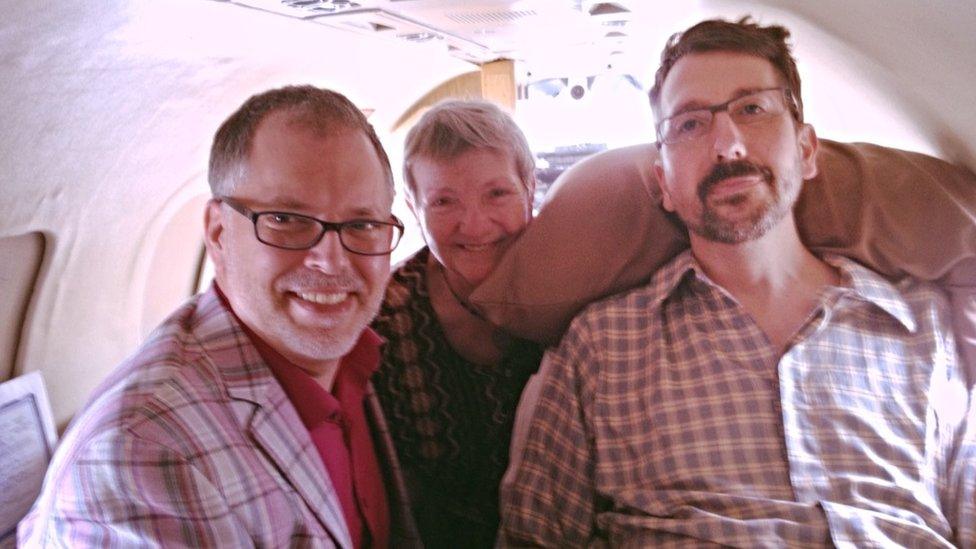
Married on the tarmac inside a medical jet
Only five others were present: two pilots, a nurse, a newspaper photographer and Mr Obergefell's beloved aunt Paulette Johnson, who officiated.
Years ago, he claims, she told him: "You guys, in my mind, represent marriage better than any other couple I've ever known. So if you can ever get married, I want to be the one to do it."
Five days after their wedding, their attorney Al Gerhardstein came to visit, with a blank Ohio death certificate in hand.
Given that the state did not recognise their marriage, he told them, Arthur's death certificate would say he was unmarried and would not list his surviving spouse.
"We weren't willing to accept that," Mr Obergefell told the BBC. "We wanted John to die a married man."
While caring for his husband, he filed a lawsuit in federal court alleging discrimination in Ohio's marriage laws.
Arthur died within three months of the court filing, but Mr Obergefell kept fighting for the next two years, taking his case all the way up to the nation's highest court.
In June 2015, the Supreme Court ruled - in a 5-4 majority - that his fundamental right to marry was guaranteed under the US Constitution, establishing a landmark nationwide precedent.
Mr Obergefell remembers bursting into tears: "My first thought was: John, I miss you. I wish you were here. I wish you could know that our marriage can never be erased. And then it hit me that for the first time in my life as an out gay man, I felt like an equal American."
In the seven years that have passed since then, there have been other wins for the LGBT community, including the court barring workplace discrimination on the basis of sexual orientation and Mr Obergefell's hometown of Sandusky passing non-discrimination protections.
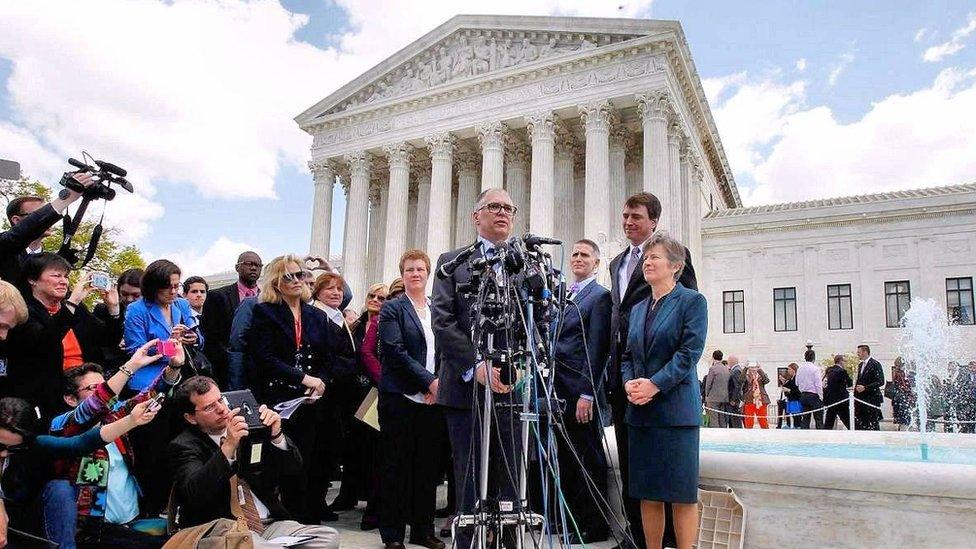
Speaking to reporters after victory at the Supreme Court
But progress has also been met with resistance. Wedding cake makers and other business owners have refused service to same-sex couples. Elected officials have declined to issue same-sex marriage licenses. And over half of US states can still deny LGBT Americans housing, medical care and other services.
The United Nations' independent expert on sexual orientation and gender identity, Victor Madrigal-Borloz, who recently toured the US, has said that "equality is not yet within reach and in many cases not within sight" for much of the LGBT community.
"On the surface, you have the idea that LGBT people in the United States are enjoying this very peaceful existence in social and community life," said Mr Madrigal-Borloz.
"Under that surface of inclusion and acceptance, you have powerful forces that are pulling them backward, and certain narratives that utilise religion as an excuse to exacerbate violence and discrimination."
Mr Madrigal-Borloz lauded the Biden administration as being "willing and extremely supportive" in combating anti-LGBT efforts but slammed several recent state and local measures as "regressive".
More than 300 bills viewed as anti-LGBT have been introduced across the country this year, according to the Human Rights Campaign (HRC) non-profit. About half target transgender children, banning them from playing sports or receiving gender affirming health care, while others include restricting LGBT education or banning LGBT-themed books. At least 25 bills have so far been enacted, in states where Republicans control the legislature.
Elected officials at various levels of the Republican Party have also stepped up their rhetoric against members of the LGBT community, frequently attacking opponents of their proposed legislation as sexual "groomers" and "paedophiles".
It comes as the number of people identifying as LGBT has risen to a record 7.1% of the population this year, according to Gallup. The polling company also notes that more than two-thirds of Americans now back legal same-sex marriage, also a record high.
The Respect for Marriage Act passed just over a week after a mass shooting at an LGBT nightclub in Colorado left five people dead and dozens more injured.
The bill seeks to quell fears that the Supreme Court, having overturned the nationwide right to abortion, could revisit the Obergefell precedent.
But watered down in its final form, the legislation signals that "lawmakers in this country, and particularly the religious right, have warped the concept of religious freedom", Mr Obergefell claims.
The bill protects same-sex marriage at the federal level, but leaves room for religious entities to deny services for same-sex couples. It would also effectively return the issue of marriage to individual states if the landmark 2015 decision in Mr Obergefell's case was overturned.
"I've never thought our fight was over," the accidental activist says. "Our fight continues."
- Published30 November 2022
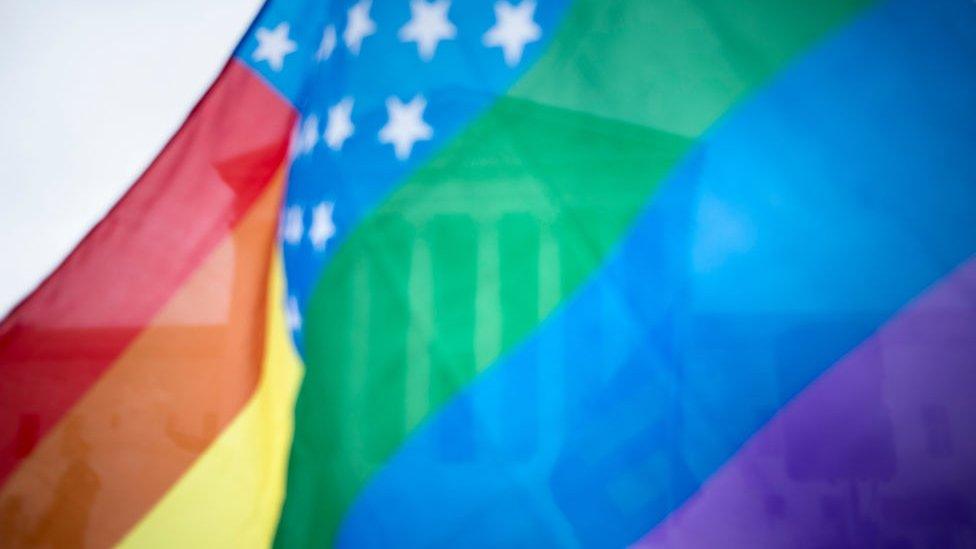
- Published27 June 2015
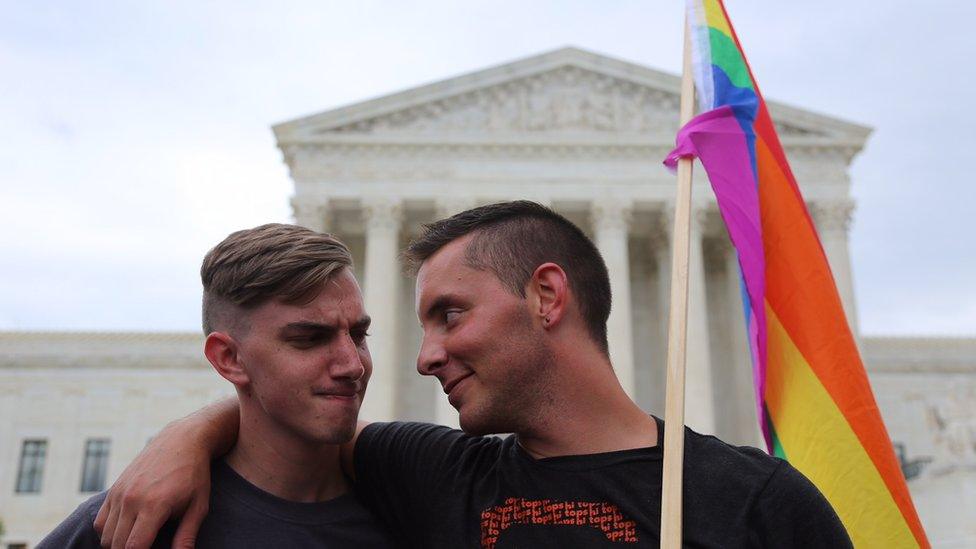
- Published26 June 2015
